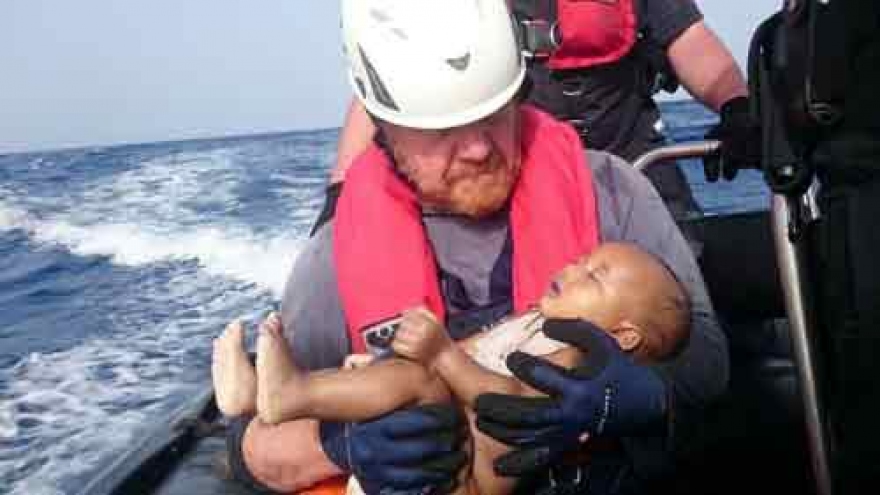Ten migrants die in sinking boat off Libya: Italian coastguard
Ten women died in a sinking rubber boat off the coast of Libya on June 30 and an Italian ship rescued hundreds of other migrants, the Italian coastguard said.
 |
| People jump out of the boat before it overturns off the Libyan coast. Photograph: AP |
On June 30, Italian coastguard ship Diciotti recovered 107 survivors as well as the 10 bodies from a boat which had taken on so much water that it was about to sink, coastguard spokesman Captain Cosimo Nicastro said.
"It would have been a greater tragedy just a few minutes later," he said, adding the women probably died either of suffocation under the weight of other people or by drowning in the bottom of the rubber boat.
The same coastguard ship later rescued all 116 migrants aboard another rubber boat in distress in the same area.
The latest deaths came as the wreck of a fishing boat that sank in April 2015 was being taken into port, with hundreds of bodies still thought to be trapped in the hold.
The disaster prompted the European Union to step up rescue efforts in the Mediterranean. Hundreds of thousands have made the perilous crossing in the last two years, and thousands have died.
Survivors had said just after the disaster that about 800 people had been on board, and the official estimate of the number of deaths was about 700. But a senior naval officer said on June 30 the actual toll could be lower.
"Looking at the size of the wreck, it seems there are fewer, although no fewer than 300," Rear Admiral Pietro Covino said.
That would be in addition to about 169 bodies already recovered from the seabed, bringing the total to around 469.
Covino said the recovery process, in which a frame-like apparatus lowered from a navy ship gripped the wreck and raised it to the surface, had cost 9.5 million euros (US$10.54 million).
The hulk will be placed in a 30 meter-long refrigerated tent being set up at the Sicilian port of Augusta, where forensic experts will try to identify the bodies of the victims. There are plans for a Europe-wide network to cross-check data and identify missing people.
"Giving a tomb to each of these people means giving them the right to be remembered. And it means telling Europe which values really count," Italian Prime Minister Matteo Renzi wrote on Facebook. He did not say where they would be buried.
Despite winding down its "Mare Nostrum" search and rescue operation in 2014, Italy has continued to respond to SOS calls from migrant boats in trouble and coordinate rescues.




